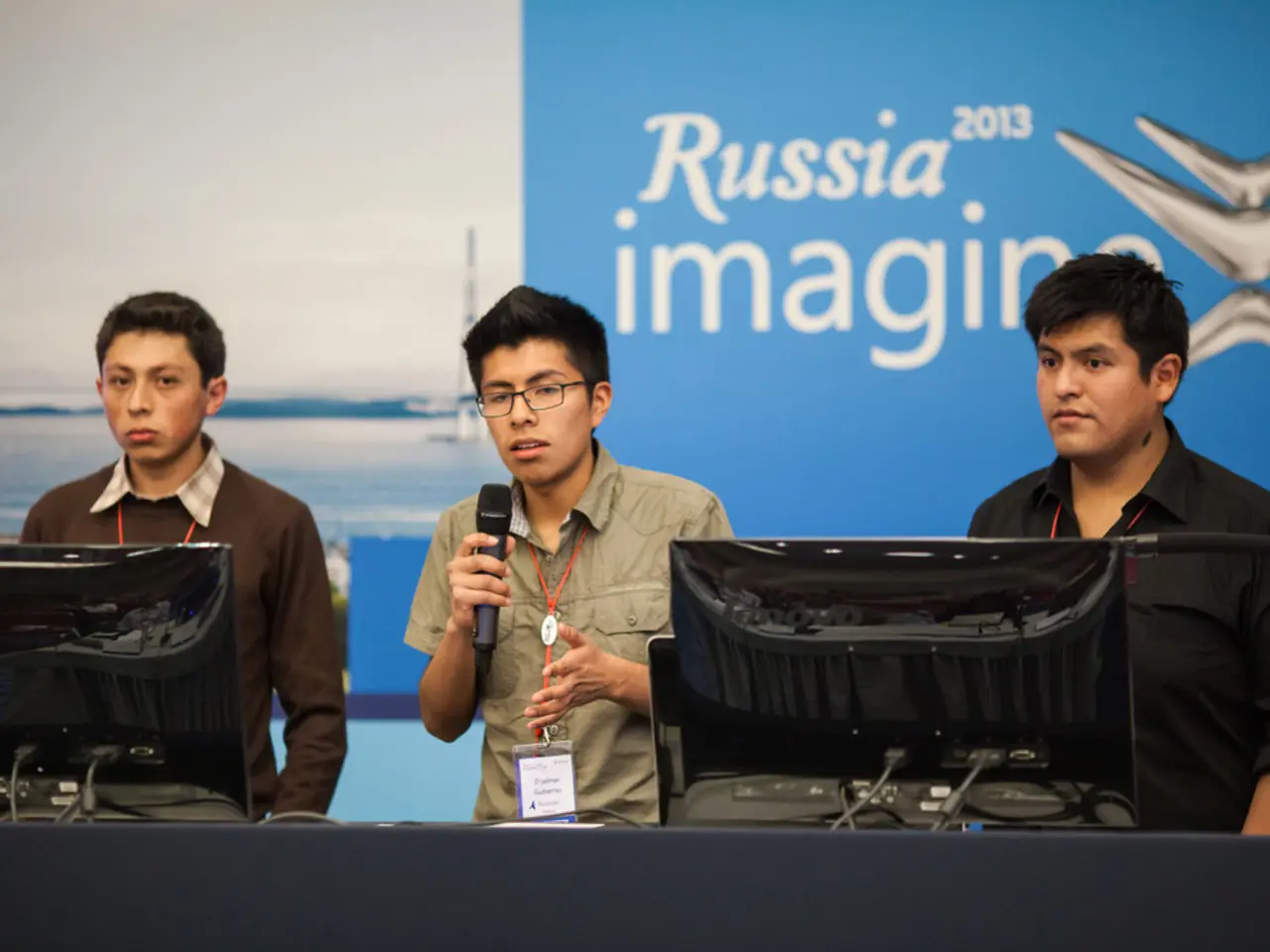Latest AI Business News Highlights - July 31, 2025
In the world of technology, the race for AI superintelligence is heating up, with tech giants Meta, OpenAI, and Anthropic each taking unique approaches to secure their place at the forefront of this transformative technology.
Talent Acquisition and Compensation
Meta is aggressively poaching top AI talent from rival firms like OpenAI and Anthropic by offering substantial compensation packages, including up to $200 million over four years or even billion-dollar offers for leadership roles [1][2]. This strategy allows Meta to attract the best minds in AI research. In response, OpenAI is trying to recalibrate its compensation and recognize top talent in creative ways to counter Meta's offers [2]. Anthropic, while also impacted, has not publicly detailed its specific strategies for retaining talent.
Computing Resources
Meta is significantly investing in computing infrastructure, including building multi-billion-dollar GPU clusters. This approach allows Meta to have vast computing resources available for AI development, transitioning from being GPU-poor to GPU-rich [1]. OpenAI, while a leader in AI computing resources, is facing competition from Meta's recent investments. Details on Anthropic's specific infrastructure are less publicized.
Team Structure
Meta emphasizes small, agile teams to develop frontier AI models. This approach allows for faster innovation and flexibility, which is advantageous in rapidly evolving AI landscapes [4]. OpenAI and Anthropic might not have as explicitly defined team structures, with OpenAI facing internal challenges, including a mandatory vacation for its staff amid rising workweek tensions [2].
Strategic Focus
Meta's strategy focuses on creating a "Personal Superintelligence" vision, where AI empowers individuals to achieve their goals and enhance user experiences across Meta's platforms [3][5]. OpenAI's ChatGPT has been a significant focus, with efforts to maintain leadership in AI model development. Anthropic's focus is more on aligning AI with human values and safety, though specific details on its superintelligence strategy are not as frequently publicized.
Elsewhere in the tech world, Meta has created a new AI superintelligence unit, MSL, which will house various AI teams. Google's Q2 earnings showed an overall revenue growth of 14%, with the company increasing its capital expenditure from $75 billion to $85 billion for 2025 [6]. Microsoft's Q4 FY2025 results showcase strong performance across all segments, with Azure surpassing $75 billion in revenue [7].
In the crypto market, regulatory environment is improving, with the U.S. House of Representatives set to begin deliberations on a series of crypto bills. Bitcoin ETFs had their biggest day of inflows in 2025 at $1.18 billion [8]. Tesla's Q2 results showed a 16% decline in automotive revenue and a 23% drop in adjusted net income [9]. However, Tesla sold 75% of its bitcoin holdings at a time when the price was tanking, resulting in a multi-billion dollar opportunity cost [10].
Meanwhile, Nvidia became the first public company to exceed a $4 trillion valuation [11], and Samsung Electronics shares opened 3.5% higher after disclosing a contract to supply semiconductors to a major global corporation [12]. AMD is expected to have a 36% revenue market share by the end of 2025, reducing Intel's share to about 55% [13]. Shengjia Zhao has been named as the chief scientist of Meta's AI superintelligence unit [14]. Mark Zuckerberg has outlined a vision for personal superintelligence and stated that it is now within sight [15].
The cryptocurrency market showed resilience today, with Bitcoin managing to hold above the $118,000 support level despite earlier weakness [16]. OpenAI has roughly doubled its revenue in the first seven months of the year, reaching $12 billion in annualized revenue [17]. Google's AI Overviews product has over two billion monthly users across more than 200 countries and territories [18]. Meta's Q2 financial performance showed revenue of $47.52 billion, up 22%, and net profit of $18.34 billion, up 36% [19]. Intel is fighting back with aggressive pricing on its Granite Rapids server CPUs [20].
These developments underscore the intense competition in the AI and tech sectors, with companies investing unprecedented financial resources, poaching top talent, and building vast computing infrastructures to secure their place in the future of AI.
- Meta's approach to secure their position in AI superintelligence includes offering substantial compensation packages to poach top AI talent from rivals.
- OpenAI is counteracting Meta's offers by recalibrating its compensation and recognizing top talent in creative ways.
- The computing resources available for AI development at Meta have significantly increased due to investments in multi-billion-dollar GPU clusters.
- OpenAI, while leading in AI computing resources, faces competition from Meta's recent investments.
- Meta emphasizes small, agile teams for developing frontier AI models, allowing for faster innovation and flexibility.
- Microsoft's Q4 FY2025 results indicate strong performance across all segments, with Azure surpassing $75 billion in revenue.
- The cryptocurrency market is showing resilience, with Bitcoin maintaining its $118,000 support level, despite earlier weakness.
- In response to the competition in the AI and tech sectors, companies are investing unprecedented financial resources, poaching top talent, and building vast computing infrastructures.
- OpenAI has nearly doubled its revenue in the first seven months of the year, reaching $12 billion in annualized revenue.




